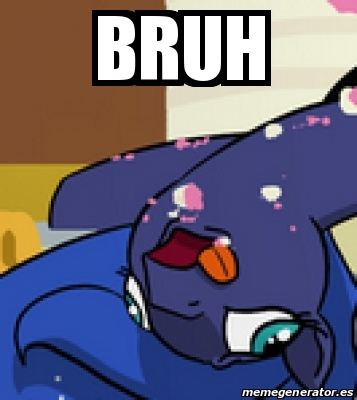Every day when I get off work and I go to a local gas station, I see them throw away a bunch of prepared food that passed shelf life. This is a chain, so hundreds of locations do this every day. Tons of food per year, tossed in the trash because it sat in the heat box too long.
Imagine how many people could eat that food. It makes me upset.
May be they are avoiding getting sued. If someone gets sick. Especially junk food, which is unhealthy to begin with
Italy made it illegal for supermarkets to throw away food and forces them to donate it. It’s not perfect, but it’s better than wasting truckloads of food every day because they didn’t sell it in time.
This has been long debunked. Laws have passed that protect owners from this.
I used to work in a sandwich shop that made it’s own bread fresh daily. At the end of every day the owner started donating the leftover bread and explained how it’s an urban myth.
People just don’t like to share.
deleted by creator
Absolutely. Binding any basic need to profits is atrocious if you think about it.
deleted by creator
Removed by mod
Under Capitalism: Oh no, robots will take over our jobs.
Under Socialism: Yes finally, robots will take over our jobs.
I really don’t get why we don’t have “meal bars” or “human food” yet. Something that covers all basic calorie and nutritional requirements, can be mass produced, and easily stored at room temperature. Like “dog food” but for humans.
The real choice should be a normal meal or a “meal bar”, not a normal meal or starving.
There are serious ethical problems with a capitalist system, especially when it comes to the necessities of life, but there’s also ample evidence that other economic systems in practice have been just as bad if not worse regarding food security. Trace the history of the USSR from the Holodomor in the 1930s to empty grocery shelves and bread lines in the 1980s, for example
I view the problem as us treating a tool as a system of government. Capitalism is an incredibly powerful tool for increasing efficiency (real capitalism as in a healthy free market, not monopoly bullshit). But we should be using that tool to our benefit, not having that tool use us. We can use it as a tool without it being our basis of society. Also, capitalism is not self regulating. That’s a bullshit myth created by elite monopolists. Unchecked capitalism leads to monopolies and monopolies are the antithesis of capitalism. We used to know that. We used to bust monopolies. We need to learn when and when not to use capitalism. Certain things need to be monopolies. Like transportation and the power grid. Since healthy competition cannot prosper we cannot make them capitalistic. We already need to recognize that capitalism is a tool for us to use. It’s ok to break capitalism in special circumstances for the greater good, because the good of the people is more important than perpetuating capitalism. I think abolishing it leads to apathy and inefficiency, but worshipping it leads to inhumanity, and we’re not even worshipping it properly because again, monopolies are not capitalism. Like all things in life it’s about balance.
deleted by creator
Yeah, the problems are just different. A mixed form would be ideal, where basic needs would be handled socially and the rest may compete in a capitalist way. The difficulty is where to draw the line exactly.
Food.
Shelter.
Education.
Healthcare.
I miss anything?
I cannot comment on communism as there has not been a true communism in the world yet, but dictatorships sure have been bad.
You know you guys are a meme out here in the real world, right?
Meme doesn’t make it false
Good King of the hill memes are like food in Soviet Russia: not everybody gets it
“There’s an egg shortage!”
> High egg prices send profits at largest US producer soaring more than 700%
Ew an amp link
Food production is one of the very few things the US government has been handling well. We give out tens of billions in subsidies to farmers every year to artificially inflate the food supply and have a nationwide SNAP program to help low income families afford food. As a result, we produce far more food than we actually need and far more than we would in a free market, allowing the US to be a major exporter of food globally and ensuring we have enough redundancy built into our food supply that the US will be the last country to starve in a famine
Anything is done to make profit. Otherwise people wouldn’t have desired a salary increase. Not selling food is not profitable, so food producers don’t want people to starve, they want food to be sold. People can starve if they have no money, which should be solved by the government, or they can starve because there is no enough food in the country or region, which should be solved by the government too.
Good, now find me an example of a famine in a capitalist system, because I can find you an example in every instance of every other system tried.
India under the Raj. Ireland under the UK.
Those were both feudalism, where the king owns all economic output and does what he wants with it, much like communism in practice.
England has explicitly had a non-autocratic king since 1215, the idea that the King of England “owned everything” is ahistorical.
Do some research on the British East India Company before you’re so sure about how things worked in India. It was the first multinational, and it ran India as a profit center.
One thing I find interesting about your comments is that you’re using a very Marxist framework to talk about pre-capitalist modes of organization (which is reductionist and partly why he is not taken seriously as a sociologist in most settings).
Baby doll you just described capitalism.
Really? Capitalism is a system in which the king controls all economic resources and output?
Yeth
What do you think communism is? Cause it’s not at all like feudalism - you’re thinking of late stage capitalism that’s like feudalism.
I think communism is an economic system where resource distribution (including labor) is centrally controlled by the state. That’s a lot like feudalism, except you don’t call the supreme leader who became supreme by killing his rivals “king”.
What you think about communism is completely wrong.
Ok well enlighten me then, because I was pretty certain communism is an economic system where resource distribution is centrally planned by the state. I wonder where I got that idea, tell me, what is communism?
No, Communism is a political ideology that focuses on giving the means of production to the people doing the labor.
What you just said is the right-wing capitalist propaganda definition of communism.
In the context of this conversation it is about removing the Capitalist from business. Making it so everyone earns their fair share of the profits instead of one person at the top (like a King/feudalism) gets all the profits, while also making all the decisions. Instead the laborors gets a stake in the business - giving more incentive to help the business do well while giving the worker more power and take home money.
Does the term “dust bowl” mean anything to you, or?
Yep. Tell me about the dust bowl.
But why is Bobby blue
I’ll tell you hwat
Under communism, food isn’t produced.
This argument would only make sense if you don’t need food to work and that no one would buy food… Nither is a thing. Also you don’t just produce food to feed people, many food products are a thing because they taste good, they are not very efficiently nutritious, so good tasting food is a thing impossible for communism as it would “waste resources”
It’s not an argument. It’s what happens. When people don’t purchase all of the food that places are selling, it ends up in dumpsters rather than going to hungry people. Go to any chain restaurant place that sells baked goods and check their dumpster at night.
The fact that its going to the dumbster is obviously not good, that’s something that is changing, here where i live many stores gift it to “stores” that “sell” it for a symbolic price.
Thats however absolutely not the point of the “meme” or what i said.
Nah, that was definitely the point of the meme.
If you say so…
Tasty food exists. Checkmate, libs.
Under “-isms”: “-isms” must manufacture “it” to justify their existence.
'There is a man, a certain man And for the poor, you may be sure That he’ll do all he can Who is this one, who’s favourite son
Just by his action has the traction Magnets on the run Who likes to smoke, enjoys a joke And wouldn’t get a bit upset if he were really broke
With wealth and fame He’s still the same I’ll bet you five you’re not alive If you don’t know his name’











